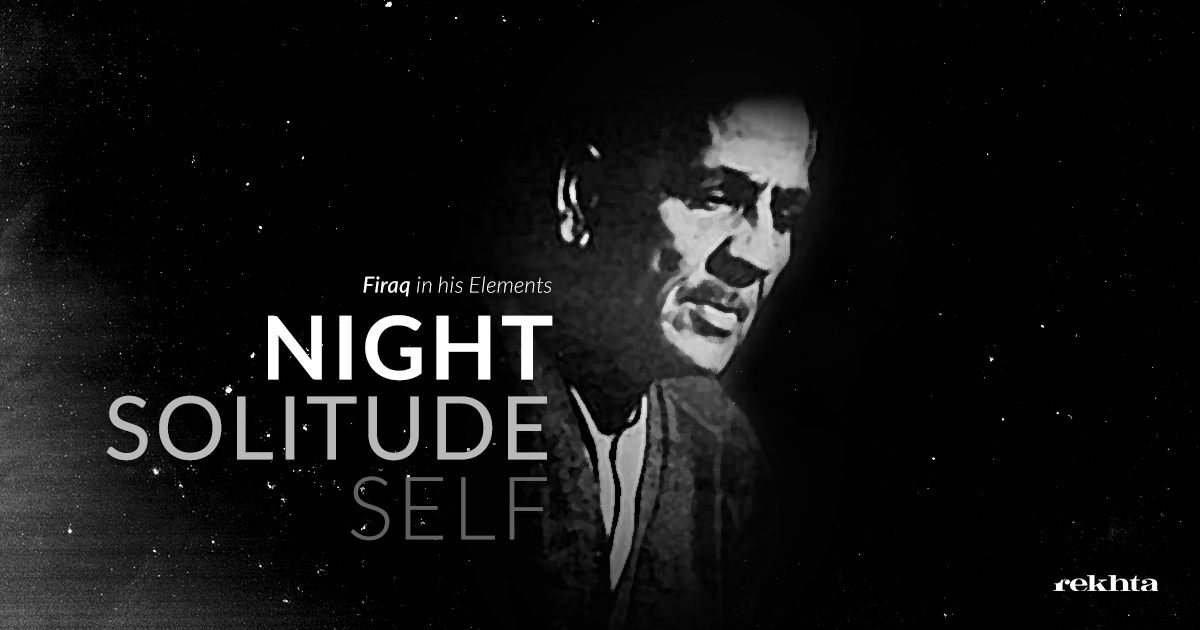
NIGHT, SOLITUDE, SELF: Firaq in his Elements
Firaq Gorakhpuri makes a friend of the night. It is a living presence in his verses that hums with soft movement. It has its own rhythm, its own pace as it moves on — moment by moment. Firaq recognizes this and connects with the elements of the night – the stars heave, the winds are infused with stories, the evenings have sorrows to share:
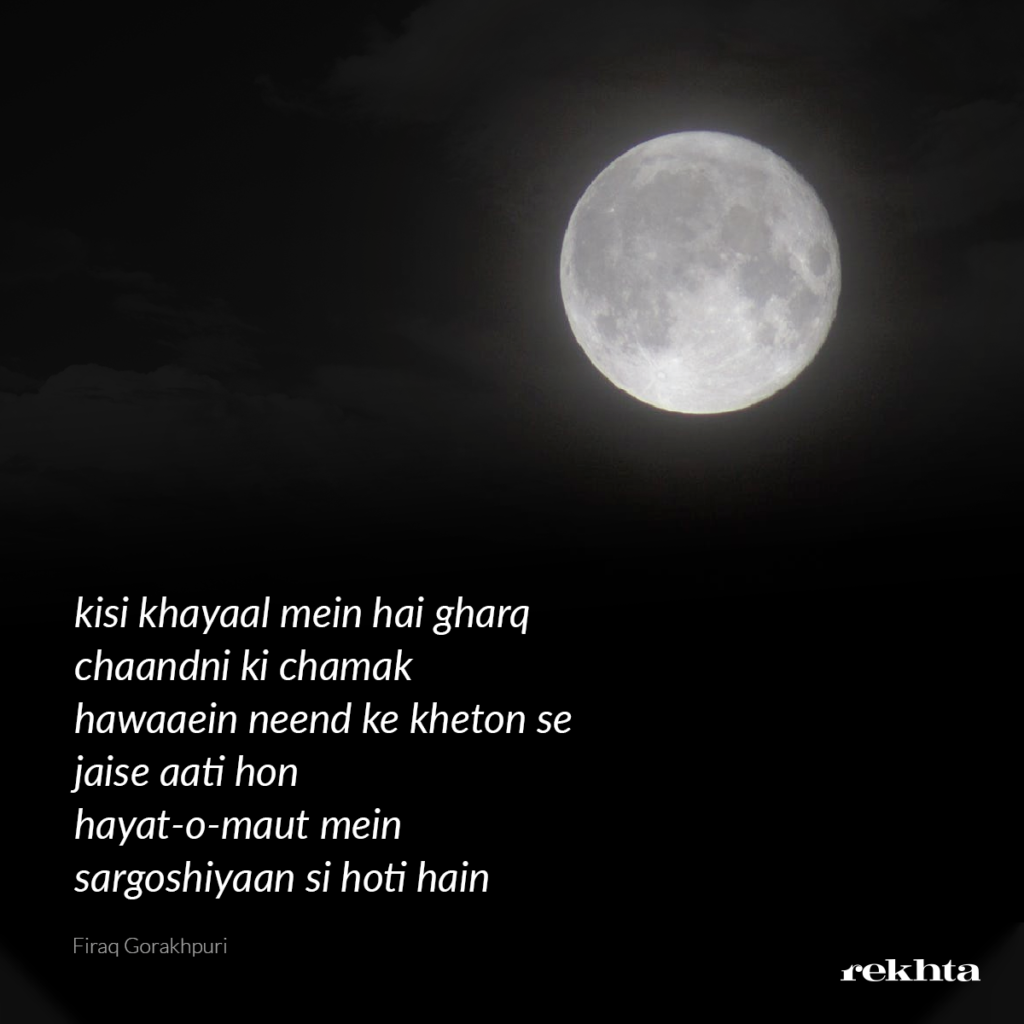
Firaq converses with the darkness. In moonlit joy and in shadowy grief, he comes to terms with loneliness, a condition he regards as a part of human experience. With a sense of wonder and with a desire to understand the whispers of loneliness, he attributes meaning to the experience of the night:
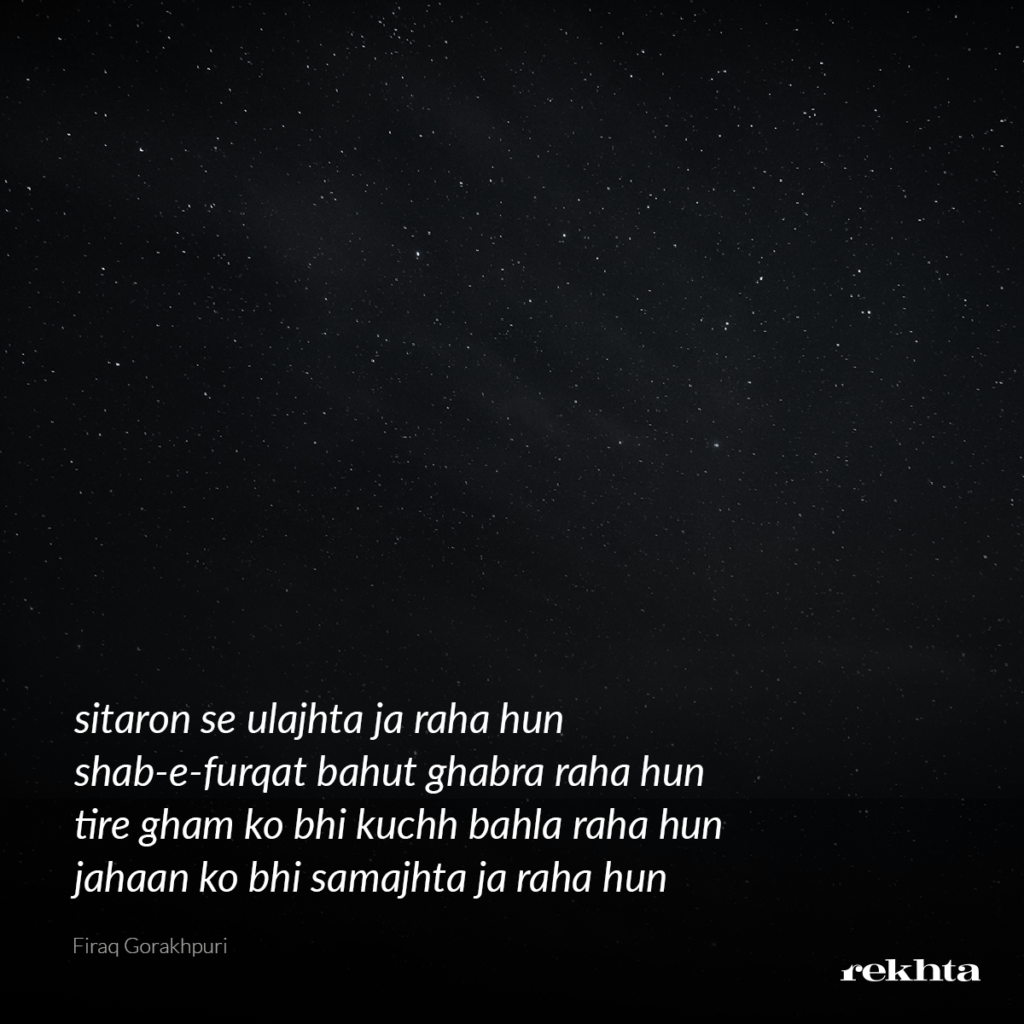
Along with Firaq, one comes closer to understanding the cosmic movements of the night which ultimately configure as a mystery. Firaq is no passive stargazer; he locates his feelings in this very act of seeing. He endows the very elements of the night-sky with human-like sentience:
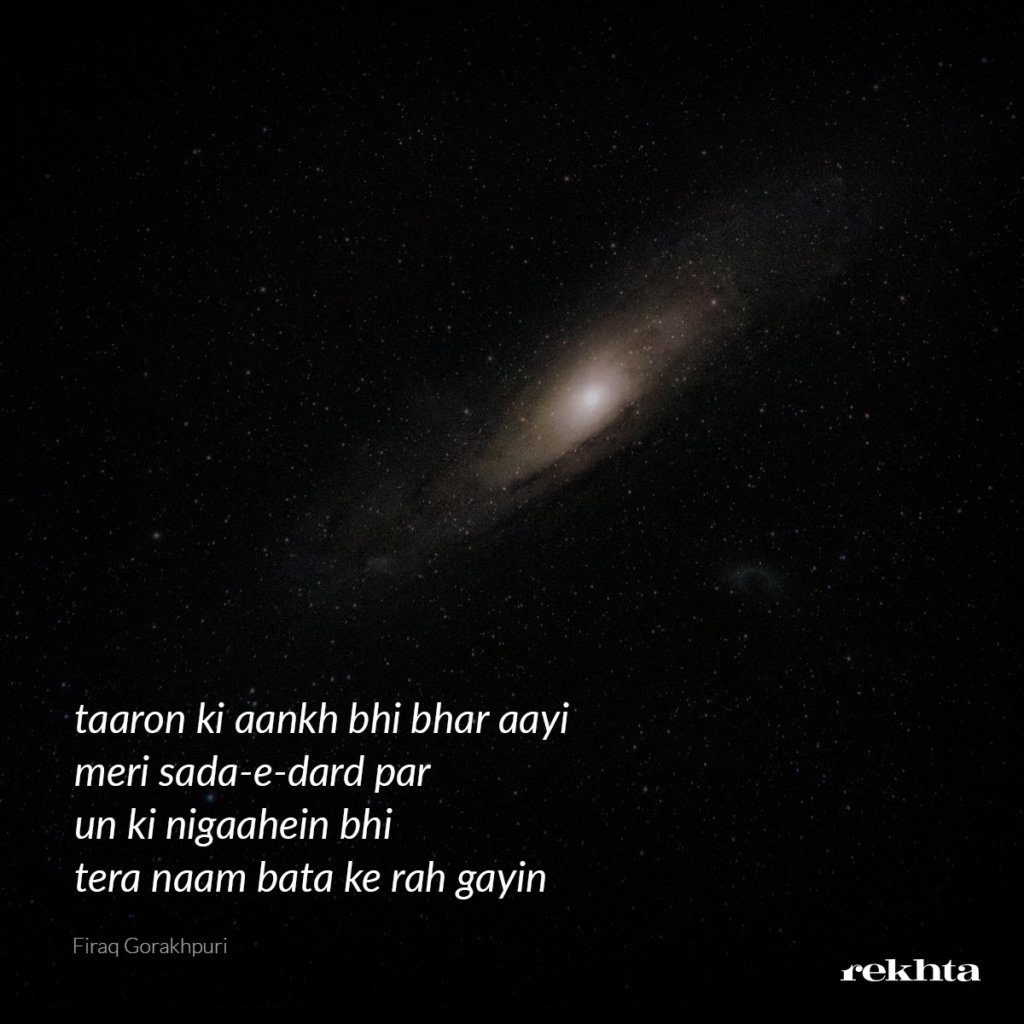
To Firaq, the stars are spectators to human affairs – they wait, they desire and they wish just as humans do. There is comfort in knowing that one’s thoughts are recognized. Firaq finds that reassurance through patient observation of the stars themselves:

The beloved in her physical presence, or even in her absence, remains a mover. Her memories infiltrate his senses. Her absence is felt the way nightfall is sensed – through the dimming of the lights and the scent of breezes that invoke memories:
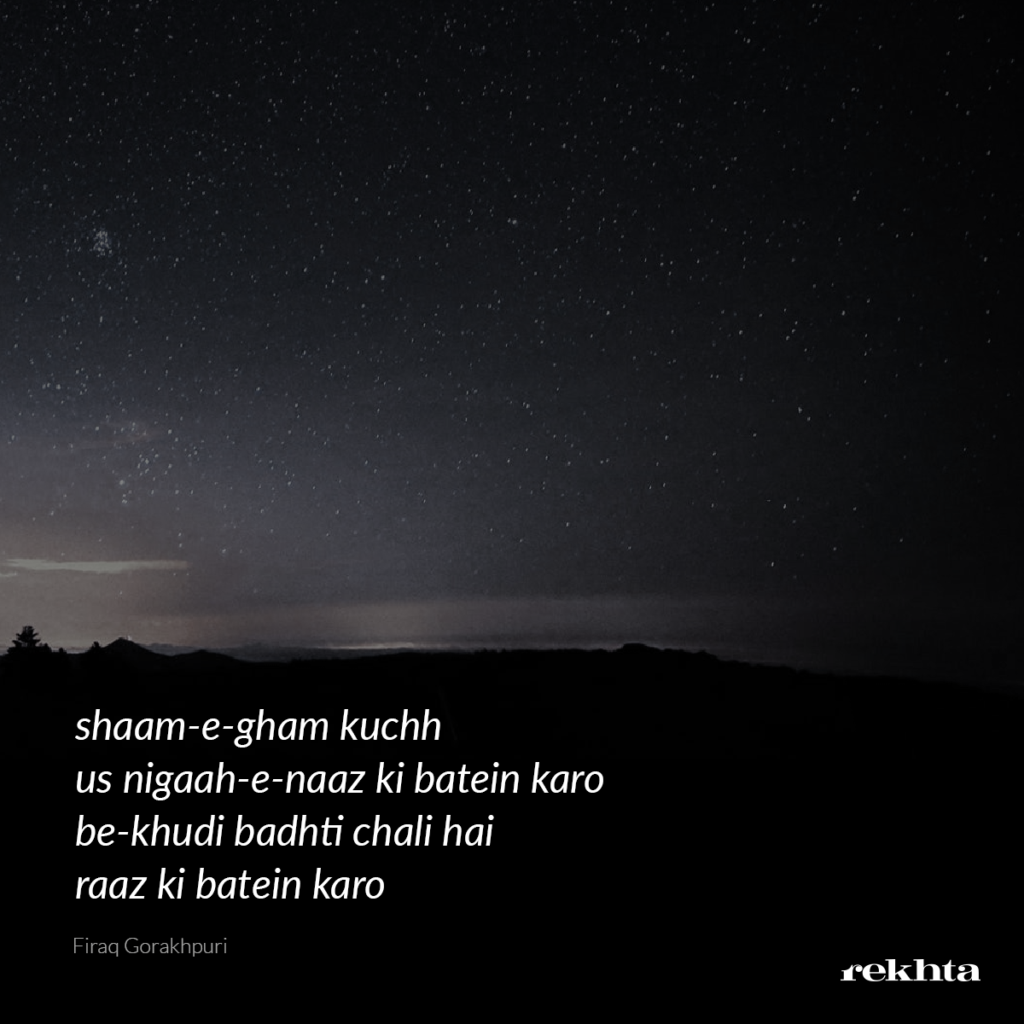
The night helps Firaq engage with memories of the beloved and more significantly with himself. Apart from reaching out to the night, he looks within. The pensive man tries to access his hidden self, for who else can one turn to when in such an hour of complete solitude? The night of loneliness necessitates this meeting of the selves. Tanhai ki raaton me aksar mujh ko milwaya hai mujh se, he writes.




